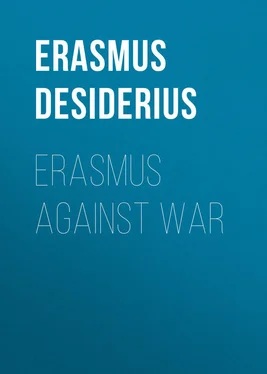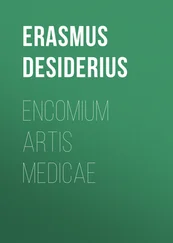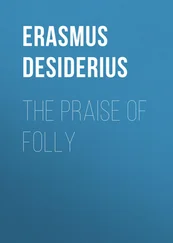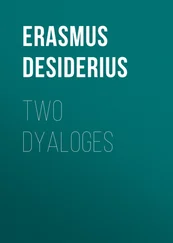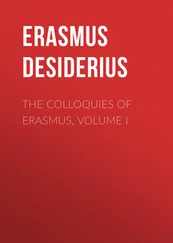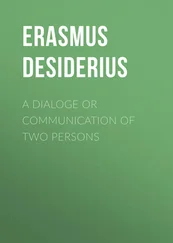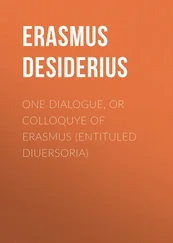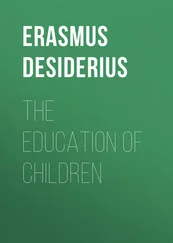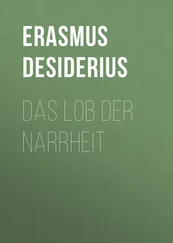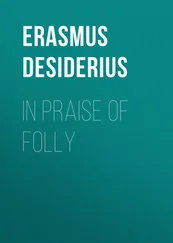Desiderius Erasmus - Erasmus Against War
Здесь есть возможность читать онлайн «Desiderius Erasmus - Erasmus Against War» — ознакомительный отрывок электронной книги совершенно бесплатно, а после прочтения отрывка купить полную версию. В некоторых случаях можно слушать аудио, скачать через торрент в формате fb2 и присутствует краткое содержание. Жанр: foreign_antique, foreign_prose, на английском языке. Описание произведения, (предисловие) а так же отзывы посетителей доступны на портале библиотеки ЛибКат.
- Название:Erasmus Against War
- Автор:
- Жанр:
- Год:неизвестен
- ISBN:нет данных
- Рейтинг книги:3 / 5. Голосов: 1
-
Избранное:Добавить в избранное
- Отзывы:
-
Ваша оценка:
- 60
- 1
- 2
- 3
- 4
- 5
Erasmus Against War: краткое содержание, описание и аннотация
Предлагаем к чтению аннотацию, описание, краткое содержание или предисловие (зависит от того, что написал сам автор книги «Erasmus Against War»). Если вы не нашли необходимую информацию о книге — напишите в комментариях, мы постараемся отыскать её.
Erasmus Against War — читать онлайн ознакомительный отрывок
Ниже представлен текст книги, разбитый по страницам. Система сохранения места последней прочитанной страницы, позволяет с удобством читать онлайн бесплатно книгу «Erasmus Against War», без необходимости каждый раз заново искать на чём Вы остановились. Поставьте закладку, и сможете в любой момент перейти на страницу, на которой закончили чтение.
Интервал:
Закладка:
War, pestilence, the theologians: these were the three great enemies with which Erasmus says he had throughout life to contend. It was during the years he spent in England that he was perhaps least harassed by them. His three periods of residence there – a fourth, in 1517, appears to have been of short duration and not marked by any very notable incident – were of the utmost importance in his life. During the first, in his residence between the years 1497 and 1499 at London and Oxford, the English Renaissance, if the name be fully applicable to so partial and inconclusive a movement, was in the promise and ardour of its brief spring. It was then that Erasmus made the acquaintance of those great Englishmen whose names cannot be mentioned with too much reverence: Colet, Grocyn, Latimer, Linacre. These men were the makers of modern England to a degree hardly realized. They carried the future in their hands. Peace had descended upon a weary country; and the younger generation was full of new hopes. The Enchiridion Militis Christiani, written soon after Erasmus returned to France, breathes the spirit of one who had not lost hope in the reconciliation of the Church and the world, of the old and new. When Erasmus made his second visit to England, in 1506, that fair promise had grown and spread. Colet had become dean of Saint Paul’s; and through him, as it would appear, Erasmus now made the acquaintance of another great man with whom he soon formed as close an intimacy, Thomas More.
His Italian journey followed: he was in Italy nearly three years, at Turin, Bologna, Venice, Padua, Siena, Rome. It was in the first of these years that Albert Dürer was also in Italy, where he met Bellini and was recognized by the Italian masters as the head of a new transalpine art in no way inferior to their own. The year after Erasmus left Italy, Botticelli, the last survivor of the ancient world, died at Florence.
Meanwhile, Henry VIII, a prince, young, handsome, generous, pious, had succeeded to the throne of England. A golden age was thought to have dawned. Lord Mountjoy, who had been the pupil of Erasmus at Paris, and with whom he had first come to England, lost no time in urging Henry to send for the most brilliant and famous of European scholars, and attach him to his court. The king, who had already met and admired him, needed no pressing. In the letter which Henry himself wrote to Erasmus entreating him to take up his residence in England, the language employed was that of sincere admiration; nor was there any conscious insincerity in the main motive which he urged. “It is my earnest wish,” wrote the king, “to restore Christ’s religion to its primitive purity.” The history of the English Reformation supplies a strange commentary on these words.
But the first few years of the new reign (1509-1513), which coincide with the third and longest sojourn of Erasmus in England, were a time in which high hopes might not seem unreasonable. While Italy was ravaged by war and the rest of Europe was in uneasy ferment, England remained peaceful and prosperous. The lust of the eyes and the pride of life were indeed the motive forces of the court; but alongside of these was a real desire for reform, and a real if very imperfect attempt to cultivate the nobler arts of peace, to establish learning, and to purify religion. Colet’s great foundation of Saint Paul’s School in 1510 is one of the landmarks of English history. Erasmus joined the founder and the first high master, Colet and Lily, in composing the schoolbooks to be used in it. He had already written, in More’s house at Chelsea, where pure religion reigned alongside of high culture, the Encomium Moriae, in which all his immense gifts of eloquence and wit were lavished on the cause of humanism and the larger cause of humanity. That war was at once a sin, a scandal, and a folly was one of the central doctrines of the group of eminent Englishmen with whom he was now associated. It was a doctrine held by them with some ambiguity and in varying degrees. In the Utopia (1516) More condemns wars of aggression, while taking the common view as to wars of so-called self-defence. In 1513, when Henry, swept into the seductive scheme for a partition of France by a European confederacy, was preparing for the first of his many useless and inglorious continental campaigns, Colet spoke out more freely. He preached before the court against war itself as barbarous and unchristian, and did not spare either kings or popes who dealt otherwise. Henry was disturbed; he sent for Colet, and pressed him hard on the point whether he meant that all wars were unjustifiable. Colet was in advance of his age, but not so far in advance of it as this. He gave some kind of answer which satisfied the king. The preparations for war went forward; the Battle of Spurs plunged the court and all the nation into the intoxication of victory; while at Flodden-edge, in the same autumn, the ancestral allies of France sustained the most crushing defeat recorded in Scottish history. When both sides in a war have invoked God’s favour, the successful side is ready enough to believe that its prayers have been answered and its action accepted by God.
Erasmus was now reader in Greek and professor of divinity at Cambridge; but Cambridge was far away from the centre of European thought and of literary activities. He left England before the end of the year for Basel, where the greater part of his life thenceforth was passed. Froben had made Basel the chief literary centre of production for the whole of Europe. Through Froben’s printing-presses Erasmus could reach a wider audience than was allowed him at any court, however favourable to pure religion and the new learning. It was at this juncture that he made an eloquent and far-reaching appeal, on a matter which lay very near his heart, to the conscience of Christendom.
Читать дальшеИнтервал:
Закладка:
Похожие книги на «Erasmus Against War»
Представляем Вашему вниманию похожие книги на «Erasmus Against War» списком для выбора. Мы отобрали схожую по названию и смыслу литературу в надежде предоставить читателям больше вариантов отыскать новые, интересные, ещё непрочитанные произведения.
Обсуждение, отзывы о книге «Erasmus Against War» и просто собственные мнения читателей. Оставьте ваши комментарии, напишите, что Вы думаете о произведении, его смысле или главных героях. Укажите что конкретно понравилось, а что нет, и почему Вы так считаете.
